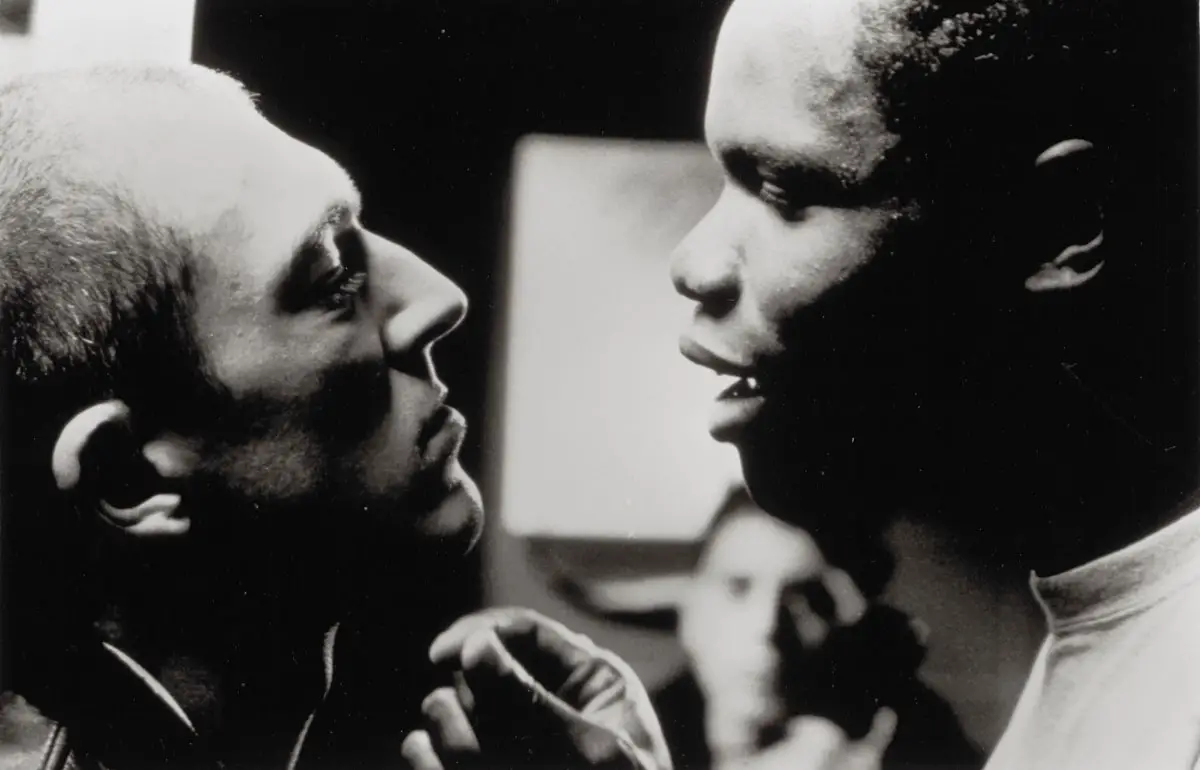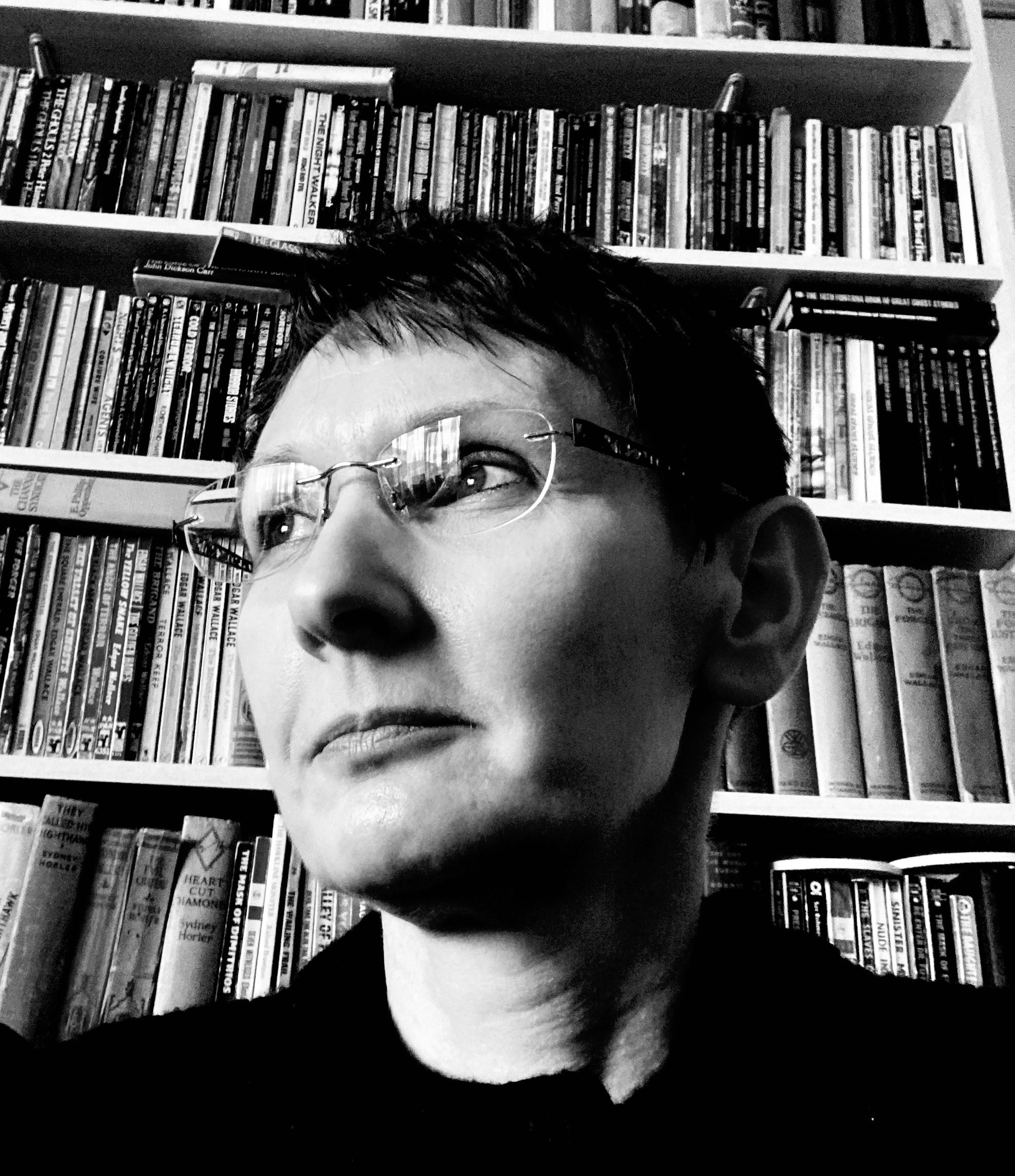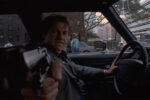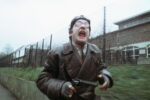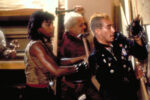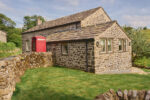La Haine (1995) – Film Review
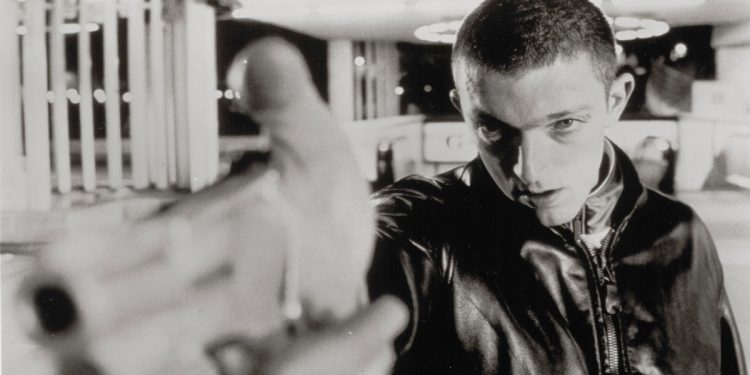
Director: Mathieu Kassovitz
Cast: Vincent Cassel, Hubert Koundé, Saïd Taghmaoui
Certificate: PG
By Sarah Morgan
Paris. A beautiful city full of amazing art and architecture, the kind of place where romantic dreams can come true…
Try telling that to Vinz (Vincent Cassel), Hubert (Hubert Koundé) and Saïd (Saïd Taghmaoui), the three main protagonists in Mathieu Kassovitz’s extraordinary drama La Haine (trans: Hate). The writer-director offers an alternative view of the French capital, one inspired by the 1993 case of Makomé M’Bowolé, a young Zairian who was shot while handcuffed to a radiator in police custody.
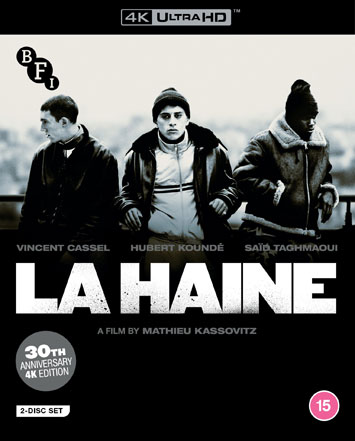 Kassovitz himself had also taken part in riots in 1986, sparked by the death of a 22-year-old student who had been beaten by police after a mass demonstration in which he did not take part.
Kassovitz himself had also taken part in riots in 1986, sparked by the death of a 22-year-old student who had been beaten by police after a mass demonstration in which he did not take part.
“Better life”
The film begins the day after such an event on a council estate in a poor district just outside Paris, in retaliation for the attack on a young local man. When the story starts, he’s in a coma; by the time it ends, he’s passed away.
In the chaos, an officer lost his gun; it’s eventually revealed that Vinz, a would-be rebel who talks a lot but can’t seem to bring himself to back up his words with actions, found it, and plans to use it against the cops. Hubert, meanwhile, a boxer and part-time drug dealer, dreams of leaving for a better life, while Saïd is the joker in the pack.
What follows is roughly 20 hours in the lives of the three friends as they fall foul of the police on several occasions. They also attempt to claim money owed to Saïd by an acquaintance, have an ill-fated trip to an art exhibition and endure a confrontation with skinheads, after which they head home for the gut-wrenching finale.
“Unforgettable”
Shot in stark black and white, La Haine is the kind of movie you’re not going to forget in a hurry. Kassovitz is sympathetic to his main characters, depicting them as bored young men trapped by circumstance – there is little hope of them ever being able to get out of the cycle of violence and crime they’re in, simply because it’s all they’ve ever known, there are no options for them, and the rest of society is unwilling to give them a chance.
Perhaps because the writer-director is also an actor (he’s appeared in Amelie and Munich, among other films), he manages to get hugely believable performances from his young and largely inexperienced cast, so much so that you sometimes feel as if you’re a peeping Tom, sneaking a look at real lives. It’s never easy viewing, but it’s unforgettable – and, sadly, still hugely relevant today, 30 years after the film’s cinema release.
Special features include an interview with Kassovitz and three of his short films.
Special features:
- 4K restoration supervised by director of photography Pierre Aïm and presented on UHD in Dolby Vision (HDR10 compatible)
- Alternative score by award-winning electronic music collective Asian Dub Foundation. Recorded live at the Royal Festival Hall in 2025
- Audio commentary by Mathieu Kassovitz (2004)
- Redefining Rebellion (2020, 5 mins): film critic and programmer Kaleem Aftab explores the spirit of revolution in La Haine
- Screen Epiphany: Riz Ahmed introduces La Haine (2020, 14 mins): the award-winning actor talks about his connection to the film
- Interview with Mathieu Kassovitz (2020, 35 mins): an interview with the actor, writer and director
- Three short films by Mathieu Kassovitz:
- Fierrot le pou (1990, 7 mins): a young man shoots hoops (or tries) in a gym, in an effort to impress a young woman
- Cauchemar blanc (1991, 10 mins): a group of white men carry out a racist attack in the banlieue
- Assassins (1992, 12 mins): Kassovitz’s short film that he later developed into the feature Assassin(s) in 1997
- 10 Years of La Haine (2005, 84 mins): feature-length documentary marking the 10th anniversary of Mathieu Kassovitz’s award-winning film
- Casting and rehearsals (1995, 19 mins)
- Anatomy of a Scene (1995, 7 mins): a look at the shooting of a particularly challenging scene
- Behind the scenes (1995, 6 mins): Kassovitz, his cast and crew prepare to embark on making La Haine
- Colour deleted and extended scenes (1995, 17 mins): including afterwords by Mathieu Kassovitz on selected scenes
- Trailers
- 80-page book featuring writing on the film by Ginette Vincendeau and Kaleem Aftab, an interview with Mathieu Kassovitz, archival essays, writing on the short film and reviews
La Haine is released on UHD by the BFI
